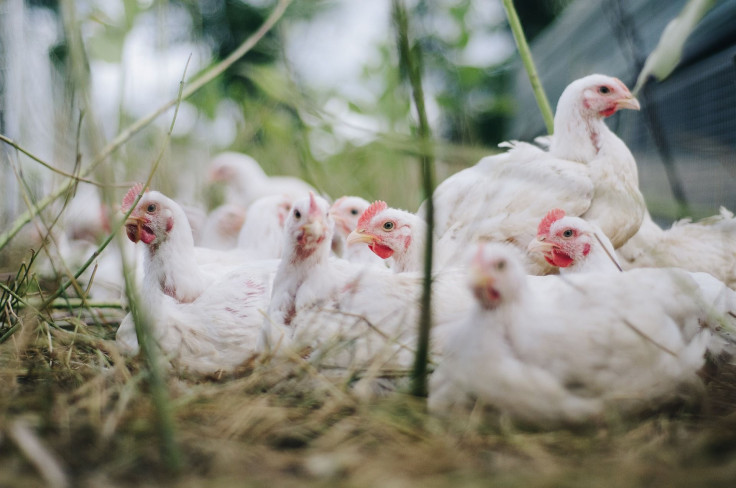Bird Flu Detected In NY, Maine Backyard Flocks, Federal Officials Confirm
KEY POINTS
- Authorities confirmed bird flu in backyard flocks in New York and Maine
- The birds will be 'depopulated' to prevent the disease from spreading
- Those involved in poultry or backyard flocks should review biosecurity measures
Federal officials have confirmed the presence of the highly pathogenic avian influenza (HPAI) in backyard flocks in New York and Maine. These add to the list of U.S. states where the pathogen has been detected.
The samples were tested at Cornell University Animal Health Diagnostic Center and confirmed at the United States Department of Agriculture's (USDA) Animal and Plant Health Inspection Service (APHIS) laboratory in Iowa, the agency noted in separate news releases Saturday.
In response, the "affected premises" in Suffolk County, New York and Knox County in Maine have been quarantined and the birds will be "depopulated" in an effort to stop the disease from spreading.
The detections were in non-commercial backyard flocks, but the pathogen has also been detected in commercial flocks in other states. This includes confirmations of HPAI in commercial Turkey flocks in Indiana and in a flock of commercial broiler chickens in Kentucky. HPAI has also been detected in wild birds in South Carolina and in another backyard flock in Virginia.
"No human cases of these avian influenza viruses have been detected in the United States," the USDA noted. It also cited the U.S. Centers for Disease and Prevention's (CDC) earlier notice that the multiple detections "do not present an immediate public health concern."
"The detection of these viruses in poultry does not change the risk to the general public's health, which CDC considers to be low," the CDC noted. "However, outbreaks in domestic poultry, in addition to infections in wild birds, may result in increased exposures in some groups of people, particularly poultry workers, for example."
Flock safety against germs and viruses
Authorities are reminding the public to cook eggs and poultry to 165 degrees Fahrenheit as this can kill viruses and bacteria. Those who are "involved" in poultry production or even small backyard flocks are also being reminded to review their biosecurity measures to ensure their flocks' safety.
"Keeping poultry houses, coops, and other enclosures clean is one of the best ways to prevent germs from spreading among poultry flocks," the USDA noted. "A thorough cleaning, and then applying disinfectant, takes time. But the process is vital to stop disease spread and keep our flocks healthy."
By practicing good biosecurity, you can reduce the risk of people, animals, equipment, or vehicles carrying infectious diseases onto your property. You can listen to a commercial turkey producer describe the steps he takes to keep his birds safe here: https://t.co/xV0PdAwKfJ pic.twitter.com/mIASJhjJv0
— USDA APHIS (@USDA_APHIS) February 15, 2022
The agency has provided a checklist for flock health and good biosecurity — from wearing personal protective equipment and "dry" cleaning all the surfaces, to applying a U.S. Environmental Protection Agency (EPA)-registered disinfectant according to label directions and washing one's hands and thoroughly with soap and water.
The agency has also provided various biosecurity tools such as GIFs, posters and videos, which can be found here.

© Copyright IBTimes 2024. All rights reserved.






















